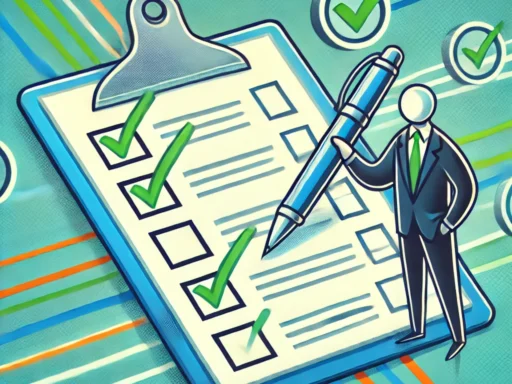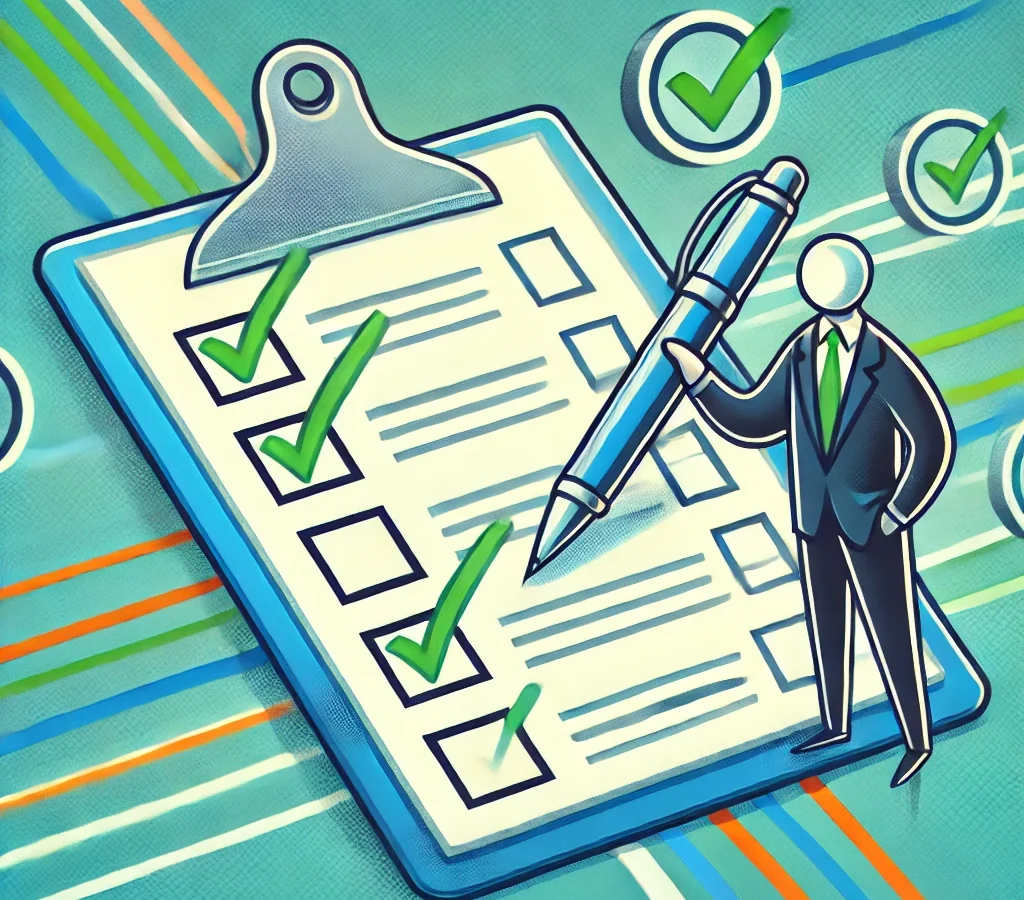Facing a deposition can be a daunting experience even for the most seasoned professionals. Whether you’re a witness or a party involved in a deposition lawsuit, thorough preparation can make all the difference between a smooth process and a stressful ordeal. Knowing what to expect and how to present yourself effectively is crucial.
This article will guide you through essential steps to ensure you’re well-prepared for your deposition. From understanding the legal nuances to mastering your body language, these tips will help you navigate the complexities with confidence.
Understanding the Importance of Preparation
Preparation for a deposition maximizes the chances of a favorable outcome. Depositions involve critical testimonies where parties and witnesses provide evidence under oath. Proper deposition preparation ensures they present accurate, clear, and concise information. Inadequate preparation might lead to inconsistencies and misunderstandings, potentially weakening the case.
Attorneys play a vital role in guiding their clients through the deposition process. They help identify key areas to focus on, anticipate possible deposition questions from opposing counsel, and develop strategies for effective responses. This comprehensive approach reduces the likelihood of surprises during the deposition and strengthens the client’s position.
Reviewing all relevant documents beforehand is essential. Witnesses and parties should familiarize themselves with case details, including any relevant contracts, emails, or records. This familiarity enables them to recall specific information accurately and respond confidently.
Practice sessions with attorneys can significantly improve performance. These mock depositions simulate real scenarios, helping individuals refine their answers and become more comfortable under questioning. Practicing helps reduce anxiety and boosts confidence, making the actual deposition process smoother.
Research and Gather Information
Thorough research and information gathering form the backbone of a successful deposition strategy. A well-prepared participant presents accurate, concise details that enhance the credibility of their testimony.
Reviewing the Case Details
Examining the case’s specifics ensures a comprehensive understanding of its nuances. Participants must review the facts, legal claims, and counterclaims involved. Detailed knowledge of the case timeline and key events helps in anticipating possible lines of questioning. Discussions with attorneys might provide additional insights into the strengths and weaknesses of the case.
Identifying Key Documents and Evidence
Central documents and evidence form the foundation of a strong case. Participants should identify and organize relevant contracts, emails, and records. Each document’s context and significance must be understood thoroughly.
Cross-referencing these documents with the facts presented can uncover inconsistencies or support key arguments. Collaborating with attorneys during this stage can aid in understanding which pieces of evidence will be most impactful, ensuring that the right deposition exhibit is ready for reference.
Practice and Rehearsal
Effective practice and rehearsal are crucial for a successful deposition notice. Well-prepared witnesses demonstrate confidence and clarity, reducing the risk of making errors.
Role-Playing the Deposition
Role-playing the deposition helps witnesses become familiar with the process and boosts confidence. Attorneys act as opposing counsel, asking questions in a simulated environment. This practice ensures that witnesses understand how to pace their answers and deposition management stress. Realistic role-play scenarios provide insight into potential questions and enable witnesses to craft precise responses.
Preparing for Tough Questions
Anticipating tough questions is vital for avoiding unexpected responses. Witnesses practice responding to challenging inquiries, focusing on remaining composed. Attorneys provide deposition advice on crafting concise, truthful answers without revealing unnecessary information.
Preparation involves analyzing weak points in the case to mitigate risks and ensuring that witnesses stay on message under pressure. This conditioning builds resilience, enhancing the overall effectiveness of the testimony deposition.
Legal and Ethical Considerations
Compliance with legal and ethical standards is crucial in preparing for a successful deposition. This section explores the essential obligations and conduct expected throughout the process.
Understanding Legal Obligations
Participants must adhere to legal requirements to ensure the deposition’s validity. Each party needs to understand the laws governing depositions in their jurisdiction. Key considerations include:
- Truthfulness: Witnesses must provide accurate, honest testimonies.
- Documentation: Properly handling and submitting documents is essential for supporting statements.
- Confidentiality: Protect privileged communications and avoid disclosing sensitive information.
Maintaining Professional Conduct
Professionalism impacts the deposition’s effectiveness. All involved should exhibit respectful and responsible behavior. Consider these elements:
- Court Etiquette: Address all parties with proper titles and follow courtroom decorum.
- Listening Skills: Attentively listen to questions, answering clearly without interruption.
- Non-Verbal Cues: Maintain appropriate body language to convey confidence and trustworthiness.
By diligently observing these legal deposition and ethical guidelines, participants can ensure a smooth and credible deposition process.
Managing Stress and Anxiety
Preparation plays a crucial role in reducing stress and anxiety before a deposition. Implementing specific techniques can help maintain calm and ensure effective participation during the process.
Techniques for Staying Calm
Staying calm enhances focus and clarity during a deposition. Begin with deep breathing exercises, inhaling slowly for four seconds, holding for four seconds, and exhaling for four seconds. This slows heart rate and promotes relaxation.
Mindfulness deposition techniques also prove effective; focus on the present moment to reduce worries about potential questions or outcomes. Physical activities like walking or stretching before the deposition can release tension and improve mental state. Finally, ensure adequate rest the night before. A well-rested mind remains sharp and composed.
Seeking Support from the Legal Team
Leaning on the legal team can significantly ease deposition-related stress. Attorneys play a critical role in offering guidance and answering queries. Schedule a preparatory session to discuss key concerns and review strategies. Lawyers can also conduct mock depositions rule, helping familiarize with the format and potential questioning style. Encourage open communication with the legal team for reassurance and confidence. Their expertise can offer a structured approach, alleviating anxiety and fostering a sense of readiness.
Day of the Deposition
The day of the deposition is crucial in ensuring all prior preparation translates into a successful experience. Being well-prepared and composed can significantly influence the outcome.
Arriving Early and Being Prepared
Arrive at least 30 minutes before the scheduled written deposition time. This allows participants to acclimate to the environment, review last-minute notes, and minimize anxiety from rushing. Bring all necessary documents, including identification, any subpoenas, and case-related files. Having everything organized ensures a smoother process.
Possible distractions should be minimized. Ensure electronic devices are turned off or on silent to avoid interruptions. It’s best to dress professionally, as appearance impacts the deposition’s tone and perception.
Communicating Clearly and Confidently
During the deposition, clear and confident communication is essential. Answer questions directly and concisely. Avoid volunteering additional information beyond what’s asked. Take time to think before responding to ensure accuracy.
Maintain eye contact with the questioning attorney and speak at a measured pace. If a question is unclear, request clarification to avoid misunderstandings. Stay calm and composed, even if questions become challenging or provocative. This demeanor demonstrates professionalism and control.
Handling Aggressive Attorneys and Common Deposition Objections
Aggressive attorneys may use intimidation tactics to unsettle witnesses during a deposition. Knowing how to handle a deposition with such attorneys is crucial.
- Deposition Objections: Understanding common deposition objections can help witnesses remain composed. Attorneys prepare their clients by explaining these objections, ensuring they recognize when a question is inappropriate.
- Deposition vs Trial: Unlike a trial, depositions allow for broader questioning. Deposition attorneys guide their clients through what to expect, preparing them for the differences between deposition and trial procedures.
- Expert Witness Deposition: For complex cases, expert witness depositions require specialized deposition preparation. Attorneys help clients navigate technical deposition questions, ensuring that testimony is clear and impactful.
- Video Conference Deposition: In the age of technology, video conference depositions are common. Attorneys must ensure that technical setups are tested beforehand to avoid disruptions, maintaining the integrity of the testimony.
- Deposition Preparation Checklist: Using a detailed deposition preparation checklist ensures clients are thoroughly prepared, reducing surprises and enhancing performance.
Achieve Deposition Success with BlueNotary’s Reliable Notarization Services
Preparation is the cornerstone of a successful deposition. It’s about more than just knowing the facts; it’s about presenting them clearly and confidently. By staying composed and professional, individuals can effectively communicate their testimony.
Ensure your deposition documents are authenticated and legally binding with BlueNotary’s secure and efficient online notarization platform. Our services support the integrity and reliability of your legal deposition documentation.
Enhance your deposition strategy with trusted notarization solutions. Explore how BlueNotary can assist in fortifying your deposition process. Visit BlueNotary today to learn more about securing your legal documents and achieving video deposition success.
Frequently Asked Questions About Deposition Preparation
Q1. What is the first step in preparing for a deposition?
The first step is to review all relevant case documents thoroughly. Understand the key issues, facts, and evidence that will be discussed during the deposition.
Q2. How can I formulate effective deposition questions?
Formulate questions that are clear, concise, and relevant to the case. Use a mix of open-ended, probing, and clarifying questions to gather comprehensive information and uncover critical details.
Q3. What should I do to prepare the witness for the deposition?
Conduct a pre-deposition meeting with the witness to review the key issues, practice responses, and address any concerns they may have. Ensure they understand the importance of providing truthful and accurate witness testimony.
Q4. How can I anticipate and handle objections during the deposition?
Familiarize yourself with common objections and how to respond to them. Prepare to handle objections calmly and professionally, ensuring that the deposition process remains fair and orderly.
Q5. What logistical arrangements should I make for the deposition?
Ensure that the deposition location is quiet and free from interruptions. Arrange for necessary equipment, such as recording devices and a court reporter, and confirm the attendance of all parties involved.








